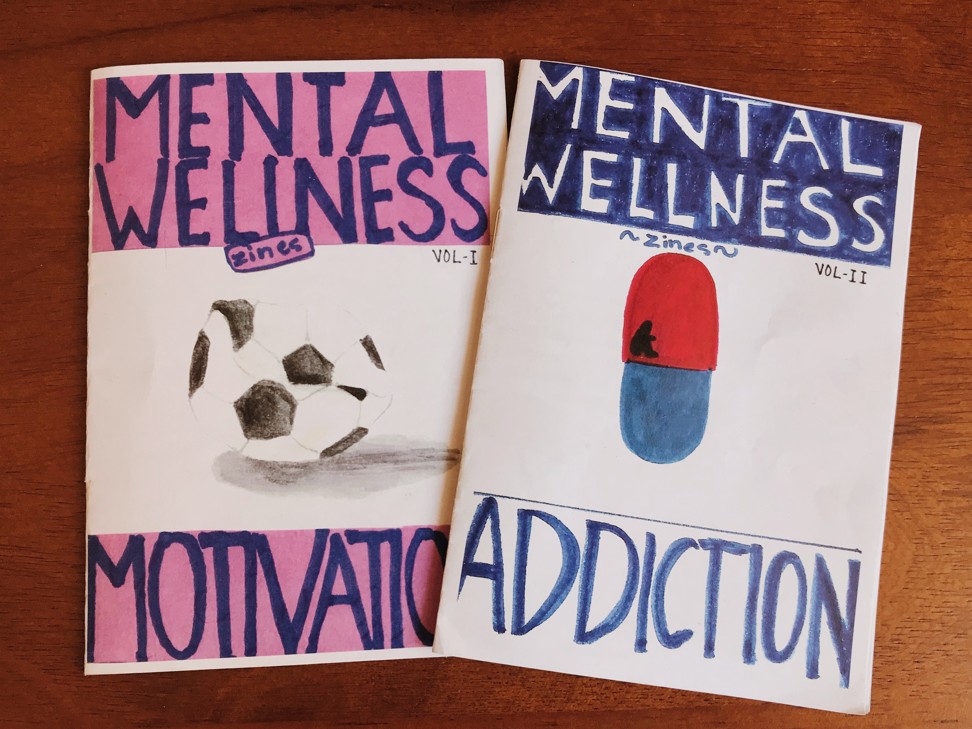
Teens’ mental health zines help stressed, depressed students in India – and adults are impressed
- Free zines offering mental health advice have been dropped in public places all over Bangalore by a high school psychology student and a friend
- More than 5 per cent of Indians over 18 have suffered from depression, according to a national survey

When 17-year-old student Gowri Kolal started giving talks to fellow high school students on depression and strategies for coping with stress, few came forward with questions. Later, though, several reached out to her through Instagram messages asking for advice.
“I realised that people needed a medium that would allow them to learn about mental health and wellness without having to put themselves in the spotlight,” says Bangalore-based Kolal.
She was always drawn towards psychology and once she started studying the subject at school, she knew it was her professional calling. Her classroom became a safe space for many students, who opened up about their personal and familial problems.
“I grew a lot in those classes and began to value things like empathy and compassion. I also felt bad for all the children who missed out on classes like these and wished to do for them what my teacher and friends did for me.”

Kolal is a fan of feminist activist Kathleen Hanna, the lead singer of the US band Bikini Kill who pioneered the Riot Grrrl female punk movement and the publisher of Bikini Kill zines – small-circulation self-published works. She took Hanna’s lead and started creating her own zines focused on mental wellness.
Inspired by her psychology classes, where she learned about the importance of mental health, Kolal got to work on her zines with guidance from her teacher. Her first zine was on motivation, the second on addiction.
She left them at her school library for students to pick up and soon was printing 200 copies to drop off around Bangalore.
Her friend Yuvan Thakur stepped in to help with digital editing and social media. Thakur had been through a difficult time after his father was diagnosed with cancer just before his high school final exams, and he was keen to help people in similar situations.
Kolal and Thakur started dropping the zines in public places such as Bangalore’s biggest bookstore, Blossom Book House; Marzipan and Urban Solace cafes; and institutions including Rainbow Bridge Music School and Army Public School. The plan is to put them in many more cafes, schools, clinics and salons.
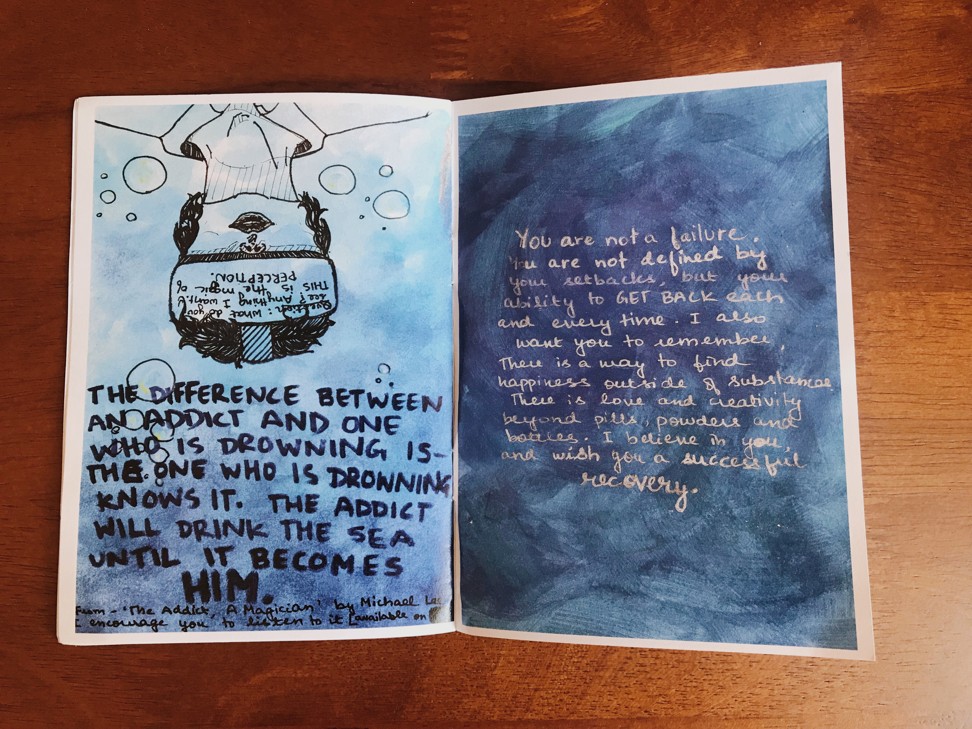
According to India’s 2015-16 National Mental Health Survey, 5.25 per cent of Indians aged over 18 have suffered from depression. It also found that 85 per cent of people with depression do not seek treatment, partly due to the stigma surrounding poor mental health, and discrimination towards those with mental health issues.
“Gowri’s inspiration was mainly the realisation of how important mental health is and at the same time the sheer lack of awareness and acceptance [of it],” says Rosmi Thomas, Kolal’s psychology teacher and school counsellor. “… The zines have helped students realise that it’s OK to have issues with mental health and get help.”
I had just finished my board exams [high school finals] so I was in no mood to study, although I knew that I had to for college entrance exams … The zine was what motivated me and I pushed myself to study
The zines’ colourful illustrations and Kolal’s handwriting capture attention. Sourish Ghosh, a storyteller and corporate trainer who stumbled upon the zine on addiction at Blossom, said he “loved the way the magazine has been formatted and the raw appeal to the senses that is so rare in the age where pretty fonts and careful formatting take away the human touch”. He has been recommending the zines to friends and family, irrespective of whether they think they need them.
The five-page motivation zine starts with reminding readers that “it’s okay not to be motivated 24/7”. Kolal then gives tips that include “talk to someone who has a positive influence on you” and “compliment yourself on even wanting to motivate yourself”, and elaborates on each of these points. There’s also: “(Debatable but) brush your teeth! It stimulates the feeling of waking up.”

On the last page of the five-page zine, there’s a motivation playlist that includes rock and indie numbers such as Andy, You’re A Star by The Killers and Sea Hearts by Honeyblood.
The zine on addiction is much longer, with 11 pages highlighting red flags to watch for, treatment, inspirational quotes, and some cool artwork.
Eighteen-year-old K. Nitya Devayya is one student who benefited from the motivation zine.
“I had just finished my board exams [high school finals] so I was in no mood to study, although I knew that I had to for college entrance exams, particularly maths, which I hadn’t done in two years. The zine was what motivated me and I pushed myself to study,” Devayya says.
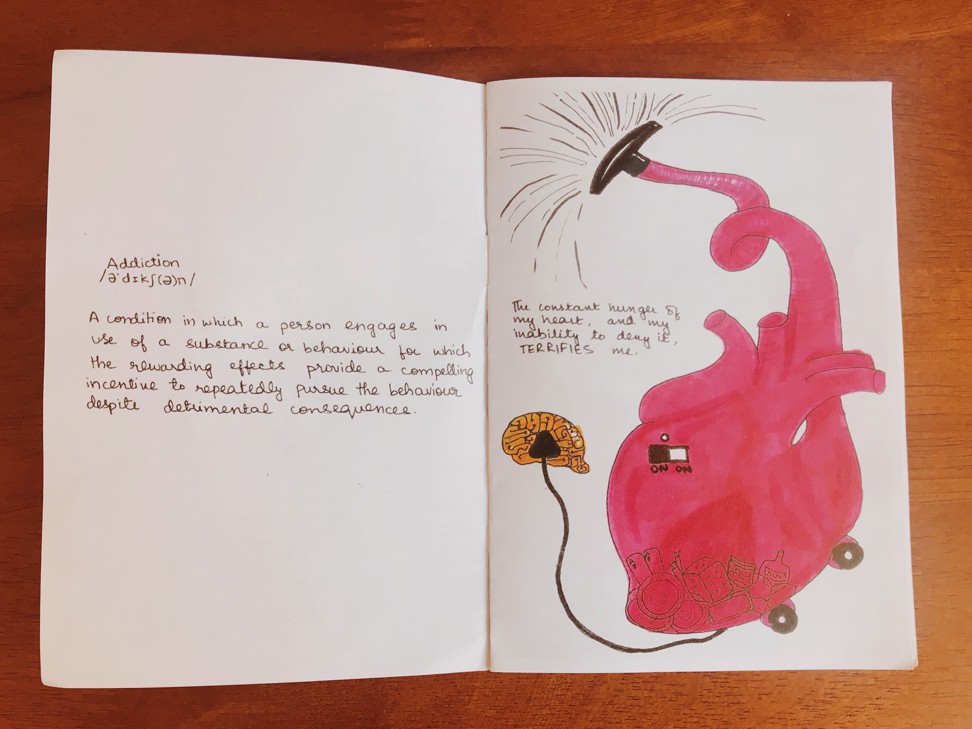
While the information for the zines is sourced from trustworthy websites, Kolal and Thakur are speaking with mental health organisations to gain access to more reliable content and studies.
In the pipeline are zines on topics such as productivity and time management – “things that contribute to your mental health in the larger scheme of things but aren’t usually highlighted prominently,” Kolal says. She also intends to cover larger and more serious topics such as depression and mental first aid.
Bangalore-based counselling psychologist Komal Bagal says that the delivery method of the zines helps create a different impact compared with other mental health platforms.
“Being reached out to unexpectedly [as the zines do] … I found that really nice and I think such initiatives should be widespread where something or the other is left down the trail for everybody out there,” she says.
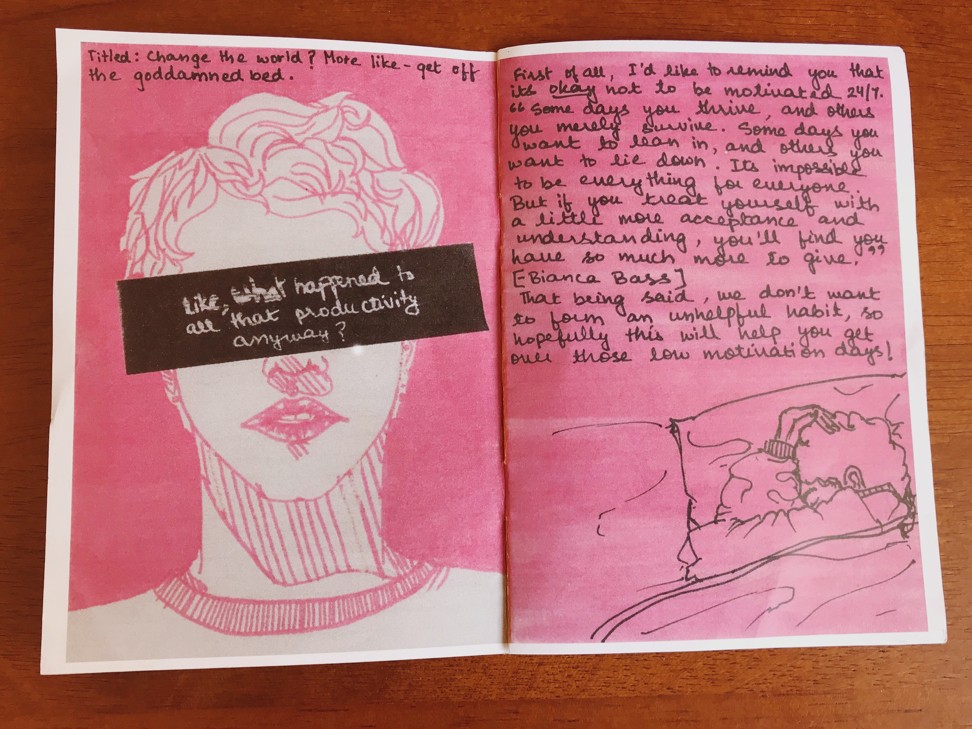
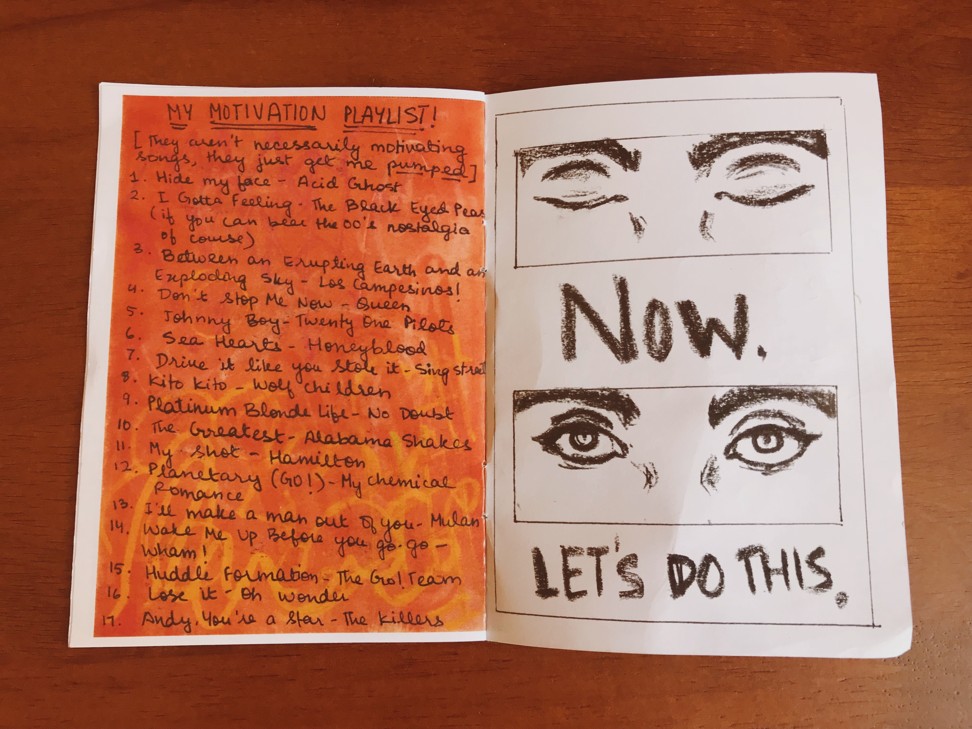
She added that the zines felt genuine and not preachy, and have the ability to make a bigger impact.
Kolal and Thakur hope their work can convince even just a single person to go for therapy, or inform someone about an issue they or their friends and family may have.
“If not this, then the least we can do is provide them with tips on small ways to improve their lives,” Kolal says.